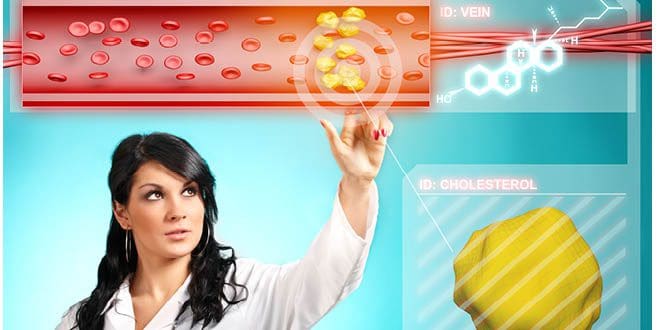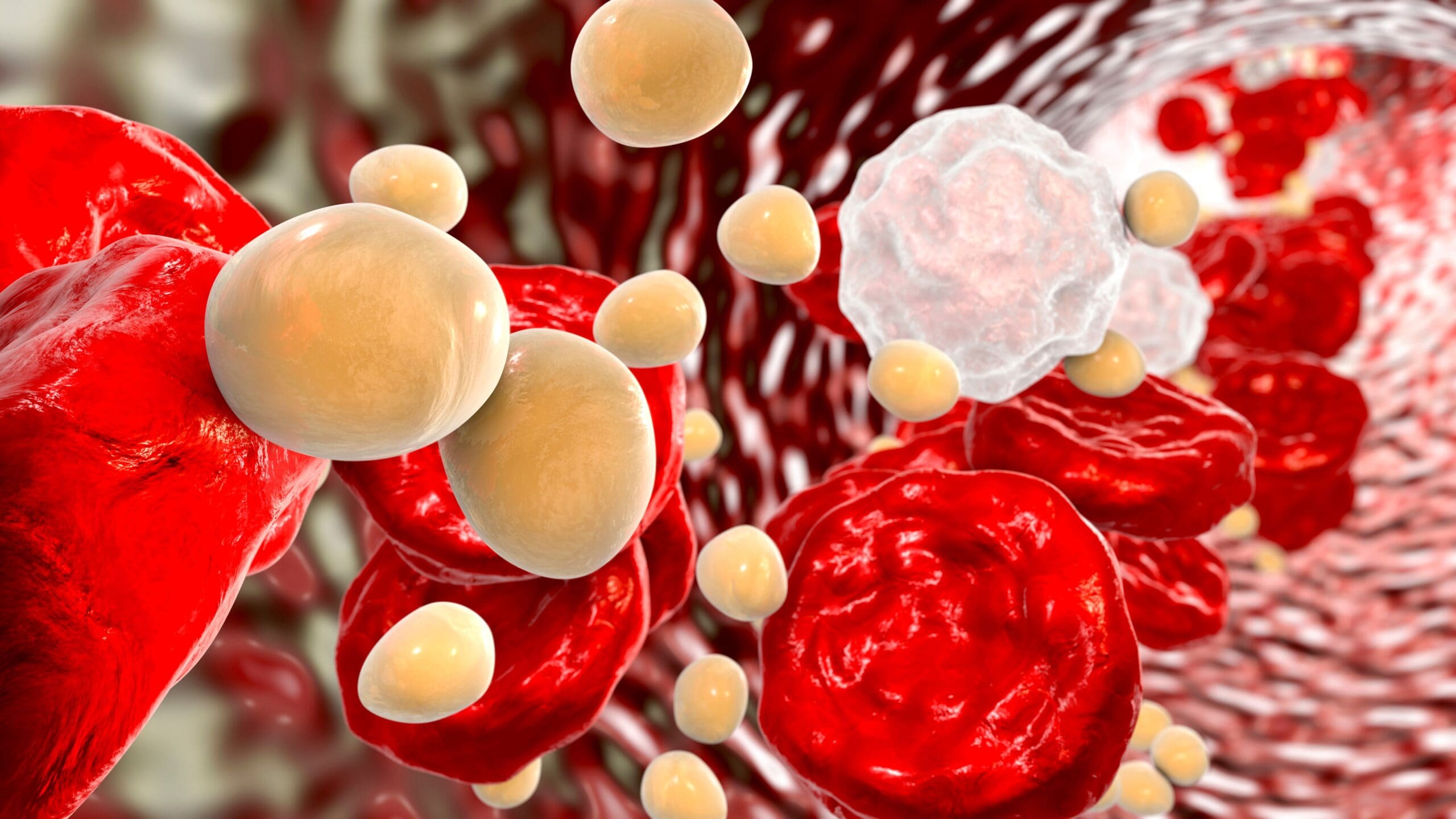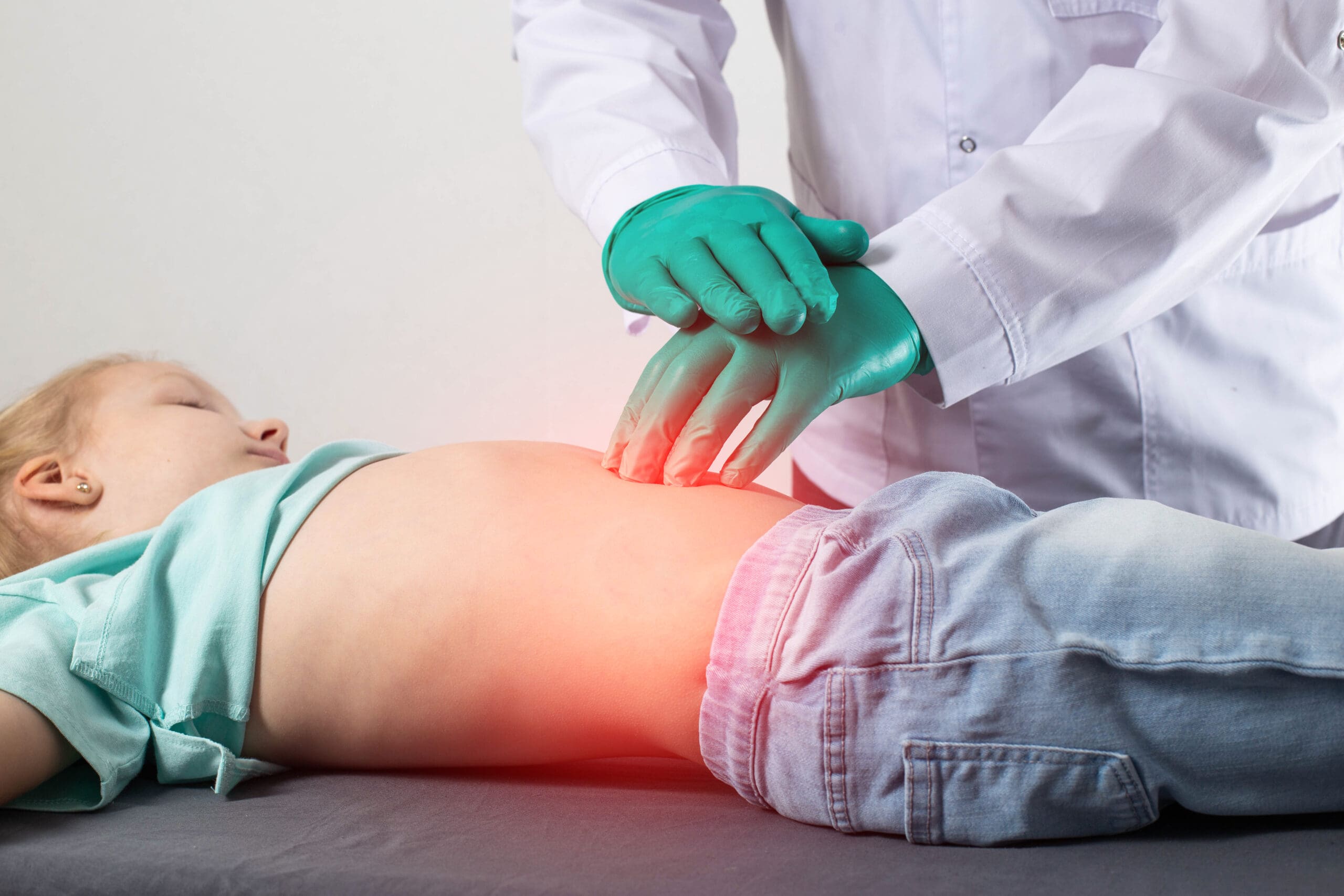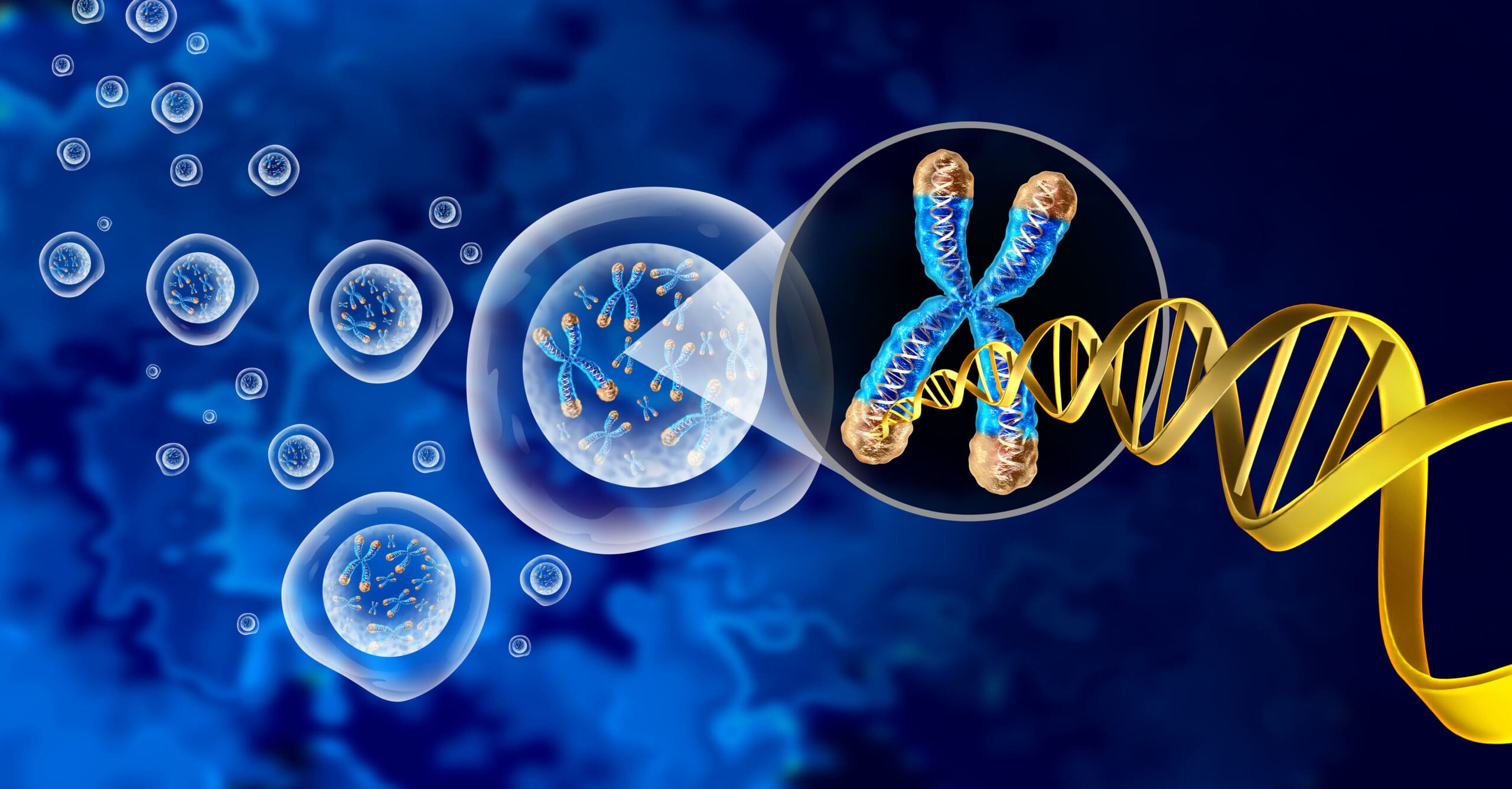Cholesterol is a fat-like substance called a sterol. It is hard and waxy and melts at 149°Celsius. The name cholesterol originates from the Greek words chole (bile) and stereos (solid), as it was first discovered in solid form in gallstones.
Our body manufactures approximately one gram of cholesterol per day; this is predominantly in the liver, but also occurs in the intestines, adrenal glands, ovaries and testes. In fact, every cell of our body has the capacity to manufacture cholesterol if needed. We also obtain cholesterol in our diet by eating animal foods such as eggs, meat and dairy products.
Our body makes cholesterol out of a molecule called acetyl Co A; this is derived from the breakdown of sugars, fats and protein. Basically any calories in excess of our body’s needs can be turned into cholesterol.
Cholesterol in Foods
Approximately 80% of the cholesterol in our body is manufactured in our liver. The remaining cholesterol is obtained through our diet. Only foods that come from animals contain cholesterol; plant foods such as vegetables, fruit, nuts, avocados and vegetable oil do not contain cholesterol. Plants do not have a liver, therefore it is impossible for them to contain cholesterol.
The body makes much of its cholesterol out of saturated fatty acids in foods we eat. Saturated fat is found in foods like eggs, red meat and coconut, but it is also created in our body from the breakdown of sugar. Therefore, if we eat too much sugar, starch and carbohydrate rich foods, we will have a lot of saturated fat in our body, which can then be used to make cholesterol. Eating trans fatty acids raises our levels of bad cholesterol and lowers levels of good cholesterol. Trans fatty acids are present in most vegetable oil, unless it is cold pressed or extra virgin, as well as most margarines.
Remember that just because a food is low in cholesterol doesn’t mean that it is a healthy food; conversely many foods, such as eggs that are high in cholesterol are very good for us and can be included in the diet regularly. The cholesterol we eat has very little impact on our blood cholesterol levels.
Functions of Cholesterol
Cholesterol has many vital functions in our body, including:
- Membrane function. Cholesterol forms part of the cell membrane of each cell in our body. Because it is a hard fat, it gives the membranes rigidity and stability.
- Synthesis of steroid hormones. The sex hormones oestrogen, progesterone, DHEA and testosterone are made out of cholesterol. This is a concern considering that millions of people are being prescribed cholesterol lowering drugs.
- Synthesis of adrenal hormones. The hormone aldosterone regulates water and sodium balance in our body and is made out of cholesterol. Cortisol is a hormone that regulates metabolism, suppresses inflammation and is produced as a response to stress. When we are under chronic stress our bodies manufacture a great deal more cholesterol.
- Bile production. 80% of the cholesterol in our body is used by the liver to produce bile salts. Bile is stored in the gallbladder and used to help in the digestion and absorption of dietary fats and fat soluble vitamins. This is the major route of exit of cholesterol from our body. Bile is secreted into our intestines and leaves the body in bowel movements.
- Vitamin D synthesis. Sunlight hitting our skin converts cholesterol into vitamin D, which is needed to keep our bones strong. Vitamin D has other important functions in our body; it boosts the immune system and helps to keep the blood pressure normal. Getting a bit of sunlight on your skin most days of the week can help to lower your cholesterol level by facilitating its conversion to vitamin D.
- Skin protection. Cholesterol is secreted into our skin, where it covers and protects us from dehydration, cracking and the drying effects of the elements. It helps to keep your skin looking plump and wrinkle free. Cholesterol has a role in healing, as high amounts of it are found in scar tissue.
- Serotonin function. Cholesterol is necessary for the function of serotonin receptors in the brain. Serotonin is a feel-good chemical that helps to protect us from depression. Several studies have show that low cholesterol levels are associated with depression and violent behaviour.
- Myelin sheath formation. Cholesterol is the main fat present in the myelin sheath, which coats our nerve cells and enables electrical impulses to occur in our brain and spinal cord. A healthy myelin sheath is needed for good concentration and memory.
- Antioxidant function. Cholesterol helps to transport fat soluble antioxidants around our body, such as vitamins E and A, and several antioxidant enzymes.
Cholesterol and other fats in Our Bloodstream
Cholesterol is not very soluble in water; therefore it must be carried around our bloodstream in various transport molecules. Certain proteins called apolipoproteins can wrap around cholesterol and other blood fats (lipids) to form what is called lipoproteins; these are essentially a combination of protein and fat.
A description of the major fats in the bloodstream follows:
Chylomicrons
These are the largest lipoproteins, and mainly transport fat from the intestines to the liver. They mainly carry triglyceride fats and cholesterol which came from the diet, and those manufactured by the liver.
Very Low Density Lipoprotein (VLDL)
These are the lowest density lipoproteins because they are highest in fat; (the more dense the liproprotein, the more protein it contains). VLDLs are made in the liver and deliver triglycerides to various tissues, especially muscle (for energy production), and body fat (for storage).
Low Density Lipoprotein (LDL)
This is the so called “bad cholesterol”. It is the major transporter of cholesterol and triglycerides, taking them from the liver to other parts of the body, where they can be used for various functions. You need your levels of LDL to be as low as possible.
There are other types of LDL:
Small dense LDL
This form of LDL is more likely to be taken up into the inner lining of arteries and promote atherosclerosis.
Oxidised LDL
This is what happens when free radicals cause damage to LDL molecules. This makes them more likely to promote damage to the inner lining of arteries, and for atherosclerosis to develop.
High Density Lipoprotein (HDL)
This is the so called “good cholesterol”. It is high in protein, which makes it denser and lower in cholesterol. This lipoprotein takes cholesterol from various parts of the body to the liver, where it can be excreted in bile. HDL carries antioxidant enzymes and vitamins to prevent the oxidation of LDL cholesterol. You want your HDL to be as high as possible.
Triglycerides
These are a storage form of fat, made up of three fatty acids attached to a glycerol molecule. High triglyceride levels in the blood make it thick and sticky; they are a major risk factor for heart disease. Both excess carbohydrate and fat in our diet are converted into triglycerides in the liver.
Lipoprotein (a)
This particle is similar to LDL, but carries a sticky repair protein called apolipoprotein (a) which is used for tissue repair. It is a major risk factor for heart disease because it thickens the walls of the arteries.
This is an excerpt from Dr Cabot’s book, “Cholesterol – the real truth”.









Leave A Comment